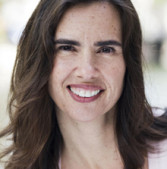Past Graduate Fellows
Greater Good Science Center Graduate Fellows represent a new generation of researchers dedicated to uncovering the roots of positive behaviors and emotions such as compassion, altruism, empathy, and happiness. After participating in the GGSC's fellowship program, many of these fellows have gone on to top research and teaching positions at some of the most distinguished universities in the world.
Read on for an overview of past graduate fellows' work.
2024-2025 Fellows
-
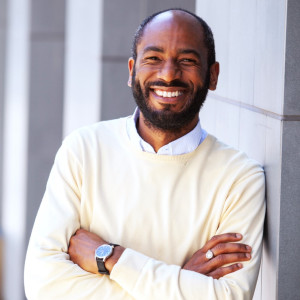
Aukeem A. Ballard
Aukeem Ballard is a Ph.D. candidate at the Berkeley School of Education. He holds a B.A. in Rhetoric and media studies as well as a Master of Arts in Teaching from Lewis & Clark College. Aukeem is interested in how students learn inside consequential, complex emotional experiences in schools as racialized and gendered beings. His dissertation builds on previous literature of Black boyhood futurity, psychological mattering, and critical theory with the goal of exploring how Black boys love possibilities into existence for themselves and their peers through their own cultural, affective practices of love-in-praxis inside sometimes oppressive structures and systems.
-
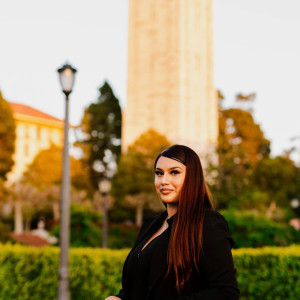
Joanna Cardenas
Joanna Cardenas is a doctoral student in the Department of African American and African Diaspora Studies at UC Berkeley. Prior to graduate school, she received a dual bachelor’s in African American Studies and Legal Studies with honors from Cal. Joanna’s research broadly focuses on how systems of confinement inform our understandings around gender, race, and ableism through the enforcement of violence and power through a close analysis of California prisons. As a GGSC research fellow, she will explore how institutional and interpersonal policing practices affect the social well-being of women in South Central Los Angeles through a Black Feminist framework.
-
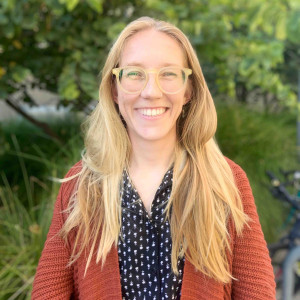
Lindsey Deringer (Libby Fee Research Fellow)
Lou Deringer is a first-year doctoral student in social-personality psychology at UC Berkeley. Before coming to Berkeley, Lou earned her B.A. in English literature from Colorado College and an M.S. in narrative medicine from Columbia University. Lou’s research broadly focuses on the interpersonal impacts of changes in the self-concept. As the Libby Fee Graduate Research Fellow, Lou will be exploring how the self-transcendent emotion of awe may impact the process of perspective taking and subsequent feelings of social connectedness—with a particular focus on how this phenomenon may take place in elderhood. The goal of this research is to offer an accessible pathway for bolstering social cohesion in elderhood by learning how we may come to understand those around us in deeper, more meaningful ways.
-
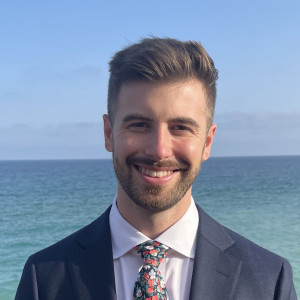
Christopher Gys
Christopher Gys is a 4th-year Clinical Science (Psychology) PhD student at UC Berkeley. Prior to graduate school, Chris studied Spanish and Religion at Bowdoin College and worked as an educator in Peru, Spain, and Japan. His current research examines the influences of digital media use, ethnocultural factors, and self-regulation on the development of US immigrant and Latin American youth. His GGSC project will take a qualitative interview-based approach to understanding factors that promote positive parent-child relationships in Chinese American families during emerging adulthood (18-29 years old), a period of significant intrapersonal, interpersonal, and cultural change within families.
-
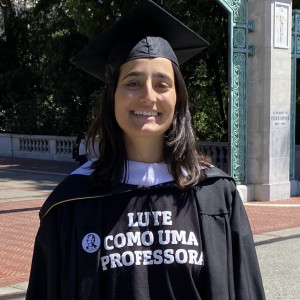
Carolina Hamburger
Originally from São Paulo, Brazil, Carolina is a first-year Ph.D. student at the Berkeley School of Education. Before coming to Berkeley, she worked as a public school teacher in her hometown, developing and enacting anti-racist pedagogy for early childhood education. As a GGSC fellow, she will research methodologies and impacts of anti-racist pedagogy in the early years, exploring its potential to cultivate critical thinking, racial awareness, positive self-esteem, and empathy among young students.
-
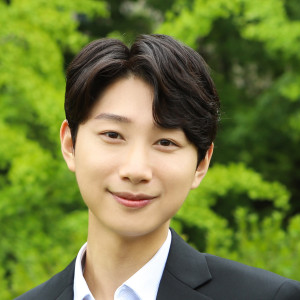
Jin Hyung Lim
Jin Hyung Lim is a student pursuing a Ph.D. degree in the School Psychology Program at the Berkeley School of Education. He obtained his B.A. (with Summa Cum Laude) in Education and M.A. in Special Education from Seoul National University in South Korea. Jin Hyung’s research broadly focuses on how the school system can support school members’ (e.g., students, teachers, and families) well-being by promoting their resilience while counterbalancing risk factors. As a GGSC fellow, he aims to explore the protective and promotive roles of teachers’ transformative social and emotional learning (TSEL) competencies on their well-being and culturally responsive practices.
-
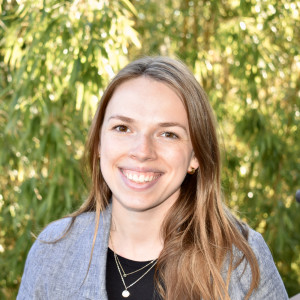
Maria Luciani
Maria Luciani is a doctoral student studying social-personality psychology at UC Berkeley. Before coming to Berkeley, Maria earned her bachelor’s degree in psychology from the University of Michigan. Maria’s research focuses on how people form and sustain high-quality relationships, often in the context of obstacles such as political disagreement. In her free time, she enjoys reading, cooking, and spending time outdoors in the beautiful Bay Area. As a GGSC fellow, Maria will study intellectual humility in the context of romantic relationships, modeling dyadic and longitudinal associations of intellectual humility with couples’ relationship quality and conflict behavior.
-

Reuben Perez
Reuben Perez is a doctoral student in the Department of Sociology at UC Berkeley. Prior to Berkeley, he worked as a research assistant at MDRC—a non-profit think tank—doing evaluation research on education programming in low-income school districts. A New York native, Reuben double majored in Puerto Rican and Latino Studies and in Sociology at CUNY Brooklyn College. During his tenure as a GGSC fellow, Reuben will examine strategies for violence prevention in NYC neighborhoods and its impact on neighborhood well-being. Specifically, Reuben will examine the local factors that give rise to contrasting strategies to curb violence in low-income Black and Brown neighborhoods.
-

Jiyoung Song
Jiyoung Song is a clinical science doctoral candidate in the Department of Psychology at UC Berkeley. Before coming to Berkeley, he completed his bachelor’s degrees in psychology and bioengineering at the University of Pennsylvania. Jiyoung’s research focuses on transdiagnostic mechanisms underlying the linkage between sleep and mental health. As a GGSC fellow, Jiyoung will investigate the role of individuals’ sleep patterns in their engagement of prosocial behaviors and mental health outcomes. Findings from this work will inform precise and dynamic approaches to studying the multifaceted impact of sleep health.
-
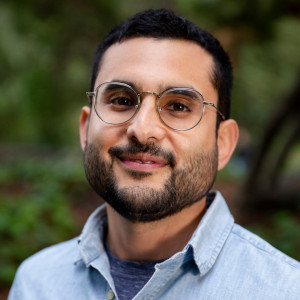
Chris Soria (Libby Fee Research Fellow)
Chris Soria is a Ph.D. student in Demography at the University of California, Berkeley, where he previously earned a BA in Sociology. His research has been presented at various conferences, where he’s been awarded for “outstanding scholarship.” Currently, Soria’s work focuses on the role of social interactions in enhancing cognitive health among aging populations. He uses causal inference methods to explore Social Network Cognitive Buffers (SNCBs), a concept he developed to examine how social factors can influence the rate of cognitive aging. One of his goals is to identify whether diversity in networks can uniquely impact cognitive aging.
2023-2024 Fellows
-
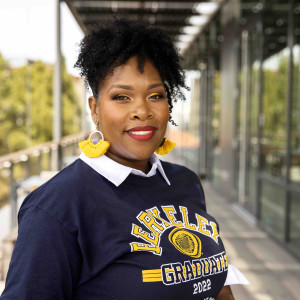
Ockemia Bean
Ockemia Bean, a doctoral student at UC Berkeley’s Haas School of Business, earned a dual bachelor’s in psychology and interdisciplinary studies from Cal. Advancing her undergraduate thesis to current work, she tests roles of perceived fairness and acceptability in Black wealth. As a GGSC fellow, Ockemia will focus on which nonverbal nudges make others feel more included professionally and socially and if perceptions of nonverbal nudges vary if targets or recipients aren’t white. A longstanding challenge social-perception research faces in social/organizational psychology is that our “scientific criterion” is based predominantly on white researchers, stimuli, and perceivers. Ockemia hopes to be a part of a revolution, testing the boundaries of generalizability.
-
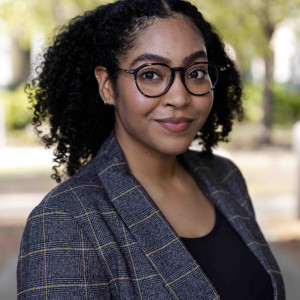
Lindsey Burnside
Lindsey Burnside is a doctoral candidate in the Psychology Department at UC Berkeley studying well-being, coping with discrimination, and residential segregation. Prior to graduate school, she earned her bachelor’s degree in biopsychology, cognition, and neuroscience from the University of Michigan. During her tenure as a GGSC fellow, Lindsey will investigate contextual factors of discrimination experiences that impact well-being, and potential protective factors.
-

Alejandro Comparo-Oliart
Originally from La Paz, Bolivia, Alejandro is a third-year doctoral student in social-personality psychology. Before Berkeley, he attended two community colleges before earning his B.A in psychology from Shepherd University and subsequent M.A in social-personality psychology from American University. His current research focuses on the health-related impacts and underlying processes of intersectionality and culture-identity interactions among minoritized communities. As a GGSC fellow, he aims to unravel the diverse positionalities that undocumented immigrants occupy within today’s socio-structural climate in the U.S (e.g., having vs. not having temporary protection from deportation) and how they influence different dimensions of their well-being (e.g., mental, social, physical).
-
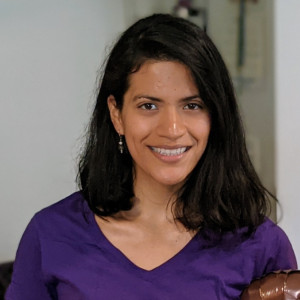
Laura Guzman
Laura is a sixth-year student in the social-personality psychology Ph.D. program at UC Berkeley. Before coming to Berkeley, she worked as a high school math and science teacher at Josephinum Academy in Chicago. Outside of work, Laura spends much time rock climbing and training for triathlons or marathons. As a GGSC fellow, Laura will study the role of culture in shaping 1) people’s judgments of what is appropriate behavior (norm violations), and 2) the behavioral cues that people look for—consciously or subconsciously—to form their judgments of others’ traits (e.g., warmth and competence traits), as well as the implications of such judgments for intergroup relationships.
-
Esther Howe
Esther Howe is a doctoral candidate in clinical science in the Department of Psychology at UC Berkeley. Esther’s research aims to describe and predict within- and between-day dynamic psychological experiences associated with the onset of chronic post-traumatic stress disorder. As a GGSC research fellow, Esther will investigate the moment-to-moment impact of social support on the post-traumatic stress symptoms of recent survivors of sexual assault. Findings from this work may inform the development of peer-to-peer early interventions for sexual assault survivors. Esther has a B.A. in gender studies from Grinnell College, and M.A. in psychology from UC Berkeley.
-
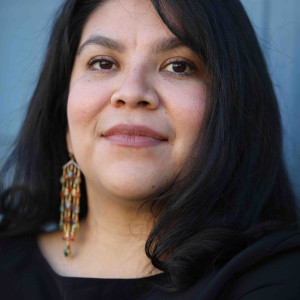
Martha Ortega-Mendoza
Martha Ortega Mendoza is a doctoral candidate at the Berkeley School of Education. She holds a B.A. in Latin American and Latino studies from UC Santa Cruz, and an M.A. in education from UC Berkeley. Martha is interested in questions around graduate education, in particular, the day-to-day experiences of first-generation, low-income, and undocumented graduate students. Her dissertation builds on the scholarship focused on undocumented students by uplifting the academic, campus climate, and financial experiences of undocumented Latinx graduate students. In her spare time, Martha loves to visit different coffee shops and restaurants with her partner.
-
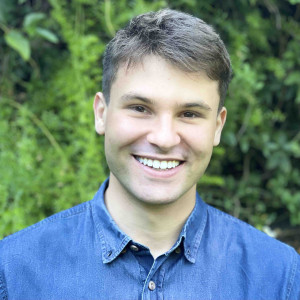
Eli Susman
Eli Susman is a clinical science Ph.D. student in Professor Allison Harvey’s Lab at UC Berkeley. Eli aims to develop efficient and accessible interventions by leveraging the wisdom and science of contemplative practice and the science of habit formation to foster compassion and freedom from human suffering. As a GGSC research fellow, his team will test whether self-compassionate touch plus evidence-based tools for promoting habit formation is superior to self-compassionate touch alone and whether improved outcomes result from strengthened practice habits. Results may inform cost-effective methods to improve outcomes of self-compassionate touch and of contemplative practices more broadly.
-
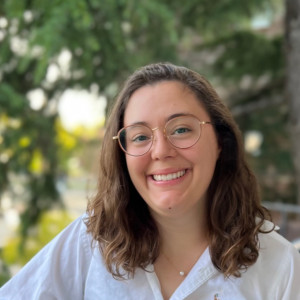
Georgia Young
Georgia Young is a second-year doctoral candidate in the Beery and Bentley Labs in the Integrative Biology department. She received her B.S. in biology from Duke University and worked as a student research assistant with the Amboseli Baboon Research Project. As a GGSC fellow, she will focus on the intersection of social behavior, illness, and empathy using the prairie vole as a study system. Using hormone assays and neuroscience techniques, she will investigate why social contact may increase while an individual is ill and how prosocial affiliative behavior may affect immune function.
2022-2023 Fellows
-
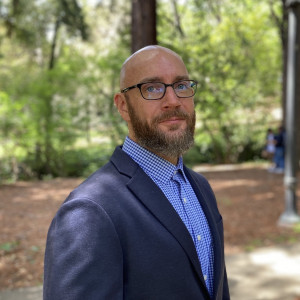
Douglas Epps
Douglas Epps is a doctoral candidate at UC Berkeley’s School of Social Welfare. Before coming to Cal, he earned a dual B.A. in psychology and social welfare, as well as an M.S.W. from the University of Washington. His research explores action-oriented solutions to address harms associated with the rise of punitive approaches to managing migration, such as the use of human confinement. As a GGSC fellow, Douglas’s study will focus on the American electorate as a key mechanism of policy change to engender more humane treatment of disenfranchised populations. More specifically, he will conduct a nationwide survey experiment to test the utility of a novel communication strategy emphasizing cross-racial and class solidarity, along with shared economic self-interest, to mobilize support for harm-reductive, community-based alternatives to immigration detention.
-

Cathy Hu
Cathy Hu is a fourth-year Ph.D. student in sociology at UC Berkeley. Prior to coming to Berkeley, she received her B.A. in sociology from Rice University and worked as a research analyst at the Urban Institute’s Justice Policy Center. Her current work sits at the intersection of punishment and society and social movements. As a GGSC fellow, Cathy is conducting an ethnographic and interview study of the criminal court as a new site of activism. Specifically, she explores grassroots efforts to bring an alternative vision of justice into the courts, which replaces carceral violence with relational healing and social well-being.
-
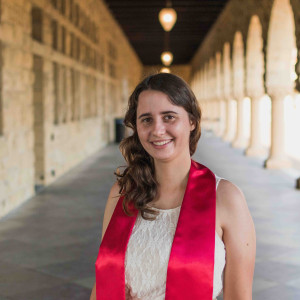
Sophie Regan
Sophie Regan is a second-year Ph.D. student in the Psychology Department at UC Berkeley. She received a B.S. in symbolic systems, a B.A. in French, and an M.S. in symbolic systems from Stanford University. Her research focuses on language development. As a GGSC fellow, Sophie will explore how young children learn to articulate their emotions and how their language skills relate to their self-regulation abilities. The goal of this research is to empower teachers to use evidence-based approaches in their preschool classrooms.
-
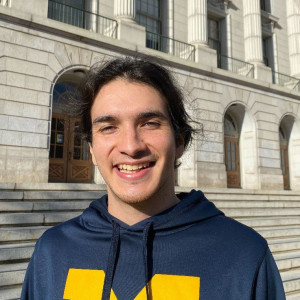
Tyrone Sgambati
Tyrone Sgambati is a fourth-year doctoral student in the Psychology Department at UC Berkeley. Before coming to Berkeley, he received his B.S. in psychology, cognitive science, and philosophy at the University of Michigan. Currently, his research focuses on three areas: ameliorating political polarization, understanding the link between psychedelics and well-being, and improving emotion regulation. As a GGSC graduate fellow, Tyrone will investigate how the trait intellectual humility is related to political polarization on Twitter. Specifically, he will examine cross-party interaction dynamics, political social network composition, and emotional responses to political stressors in high– (vs. low–) intellectual humility Twitter users.
-

Nirupika Sharma
Nirupika Sharma is a second-year doctoral student in UC Berkeley’s social-personality psychology program. She received her B.A. in psychology from New York University in 2013. Her research focuses on the effects of identity on perceptions of the self (i.e., authenticity) and intra- and inter-group relationships. As a GGSC fellow, Nirupika will explore the implications of acting white, a form of code-switching, on (1) felt authenticity and (2) feelings of shared reality with intra- and inter-group members, both of which are vital to harmonious social connections. With this in mind, Nirupika will investigate potential ways to buffer against the negative consequences of acting white. This research strives to facilitate greater concordance between feeling authentic and meeting relational needs to ultimately improve social dynamics.
2020-2022 Fellows
-
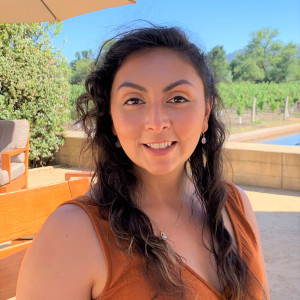
Belinda Carillo
Belinda Carrillo is a fourth-year doctoral student in UC Berkeley’s Psychology Department within the social/personality area. She received her B.A. in psychology and gender studies from Whittier College in 2015. She is a close relationships researcher who focuses on trying to understand the bidirectional link between how the quality of our physical health influences the quality of our social relationships and vice versa. As a GGSC graduate research fellow, she plans to examine how lack of sleep may hinder our ability to authentically express ourselves in our social interactions with new acquaintances. Previous research has robustly linked lack of sleep to poorer relationship quality, particularly within romantic relationships, and thus Belinda hopes this line of work will reveal lower authenticity as one potential mechanism underlying this association. Overall, she hopes that her research will inspire others to take their sleep more seriously in order to improve their physical and social-emotional well-being.
-
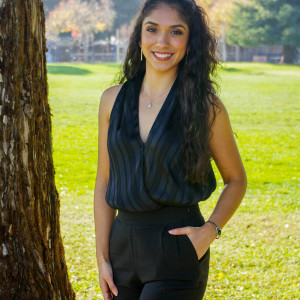
Mayra Cazares-Minero
Mayra K. Cazares-Minero is a doctoral candidate at UC Berkeley’s School of Social Welfare. Her research focuses on the construct of multidimensional resilience, specifically focusing on the mechanisms that help explain resilience among former foster youth attending public universities in California. In response to the current and narrow understanding of resilience among former foster youth as single-factor outcomes, her research focuses on representing their resilience as a dynamic and interactive process. As a GGSC research fellow, Mayra will employ a person-centered analysis to identify unique resilience profiles among former foster youth based on indicators of multi-level, resilience-associated factors.
-

Alexander Ehrenberg
Alexander Ehrenberg is a second-year doctoral candidate in UC Berkeley’s Integrative Biology Department and a researcher at the Helen Wills Neuroscience Institute and UCSF’s Memory and Aging Center. Starting in 2013, he has worked at UCSF studying Alzheimer’s disease neuropathology and received a B.A. from UC Berkeley in 2017. As a GGSC fellow, Alex seeks to understand the mechanisms underlying how social isolation acts as a risk factor for dementia using a combination of animal models, human neuropathology, and developing biomarkers. This research aims to support risk-stratification frameworks for older adults experiencing loneliness and reveal novel therapeutic targets for neurodegenerative diseases.
-
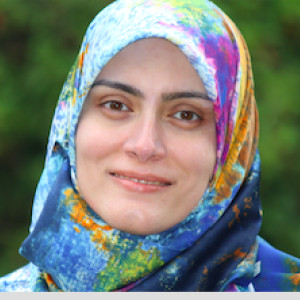
Maedeh Golshirazi
Maedeh Golshirazi is a Ph.D. candidate in the School Psychology program at UC Berkeley. Before coming to Berkeley, Maedeh received her M.A. in child development from Tufts University and B.A in psychology from Isfahan University, Iran. Maedeh’s current research interests include social-emotional learning, school climate, parental involvement in education, and how these factors may influence the development of children who are marginalized in society (e.g., immigrants and children with special needs). As a GGSC research fellow, Maedeh will investigate the direct and indirect impacts of teachers’ perceived support, collaborations among school staff, and opportunities for professional development on students’ social-emotional competence. Further, she will examine how such relationships differ by student and school characteristics.
-
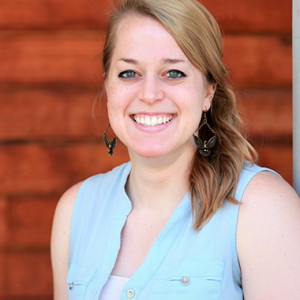
Jessie Harney
Jessie Harney is a second-year Ph.D. student at the Goldman School of Public Policy at UC Berkeley. She has previous degrees in psychology, biostatistics, and public policy. Her research interests are in criminal justice system reform with a specific focus on mental health and improving outcomes for those whose lives are impacted by the carceral system. As a GGSC fellow, Jessie will be conducting survey experiments to test the effect of perspective-taking interventions on support for justice system reforms. The first experiment will focus on prison reform, particularly in the context of COVID-19, and the second will focus on police divestment.
-
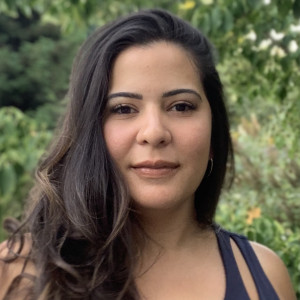
Mari Knuth-Bouracee
Mari Knuth-Bouracee is a second-year doctoral student in UC Berkeley’s Psychology Department. She earned her master’s degree in higher education and student development at Bowling Green State University and her bachelor’s in human development at Boston College. Her research focuses on the violence prevention, perpetration, norms and prosociality, and equity in education and workplaces. As a GGSC graduate fellow, Mari will examine norms-based interventions, within the context of intra-racial groups, to enhance prosociality and reduce sexual violence perpetration. The strengths of ethnic-specific communities and group processes (e.g., solidarity, collective self-esteem, and intragroup cooperation) may increase the salience, and in turn, the effectiveness of norms-based interventions.
-
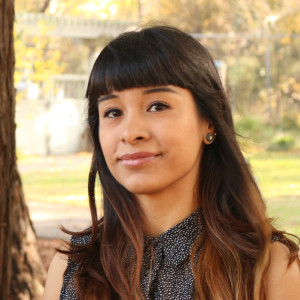
Maria Monroy (Hornaday Fellow)
Maria Monroy is a fifth-year doctoral student at the Psychology Department at UC Berkeley. She received her B.A. in psychology from UC Berkeley. Her research covers multiple facets of emotion science, such as expression, experience, and culture. A large portion of her attention is devoted to investigating the beneficial effects of awe on stress, social connection, and well-being. As a GGSC Hornaday graduate fellow, Maria will contribute to the nascent literature on awe by examining its effects on social inclusion. With this work, she aims to demonstrate that awe can increase social inclusion and thereby improve intergroup relations.
2019-2020 Fellows
-

Allison Diamond
Allison Diamond Altman is a fifth-year doctoral student in UC Berkeley’s Psychology Department. She received her B.A. in Neuroscience from Wesleyan University in 2011. Her research examines individualized approaches to the treatment of mood and anxiety disorders. She plans to continue using such personalized methodology as a GGSC graduate research fellow, where she will investigate how limiting social media use can relate to improvements in mental health and well-being. She hopes that this line of work will reveal certain mechanisms underlying this interaction, which will be essential for proposing interventions in a clinical framework and for informing what responsible phone usage is for both adolescents and adults.
-
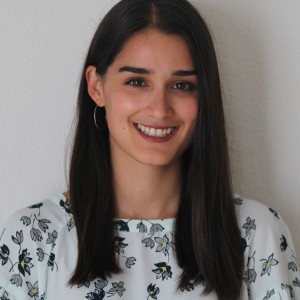
Stephanie Haft
Stephanie Haft is a second-year doctoral student in Clinical Science at UC Berkeley. She received her B.A. in Neuroscience from Claremont McKenna College. Stephanie is broadly interested in how contextual factors such as culture and socioeconomic status interact with children’s stress biology to influence developmental outcomes. As a GGSC research fellow, Stephanie will examine cultural differences in the degree of coherence between facial expressions and autonomic nervous system reactivity in children. Further, she will explore how this degree of coherence is associated with school readiness outcomes, including social and emotional intelligence and prosocial states and behaviors.
-
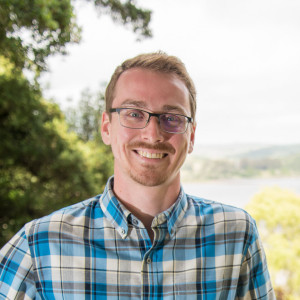
Colin Hoy
Colin Hoy is a Ph.D. candidate in the Helen Wills Neuroscience Institute at UC Berkeley. He graduated from Hendrix College with a B.A. in Neuroscience, and spent two years conducting neuroimaging research at the National Institute of Mental Health. As a GGSC fellow, Colin will use direct brain recordings in neurosurgical patients to study the neural mechanisms responsible for the rich space of human emotions identified in previous GGSC research (Cowen & Keltner, 2017). By characterizing when and where in the brain different emotions such as adoration and awe are represented, this research aims to provide insight into the nature of positive emotions and to improve techniques that promote them.
-
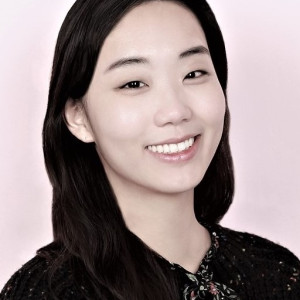
Juyeon Lee (Hornaday Fellow)
Juyeon Lee is a doctoral candidate in Social Welfare at UC Berkeley. She studies the effectiveness of school-based, universal social and emotional learning (SEL), exploring the mechanisms of SEL delivery, the contexts in which SEL works, and differential outcomes across diverse subgroups of students. She innovates and applies various advanced statistical modeling techniques to data that are reflective real-world challenges for the sake of finding better solutions to complex problems of practice. As a GGSC research fellow, Juyeon will investigate the measurement of, and relation between, social-emotional competence among teachers and students in the context of elementary school SEL initiatives.
-
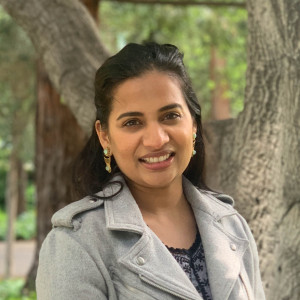
Gauthami Penakalapati
Gauthami Penakalapati is a third-year graduate student in the Energy Resources Group at UC Berkeley. She received her B.S. in Biology from the Georgia Institute of Technology and her M.P.H. in Global Health from Emory University. Her research focuses on rethinking female adolescent empowerment metrics and how empowerment metrics can be incorporated into causal models. As a GGSC fellow, Gauthami will be focusing on how empowerment programs promote and foster confidence, resilience, friendship, and aspiration development among adolescent girls in low-resources settings in Uttar Pradesh, India. With this work, she aims to highlight how complexities and realities of empowerment metrics can be mistranslated between academic measures and lived experiences.
2018-2019 Fellows
-
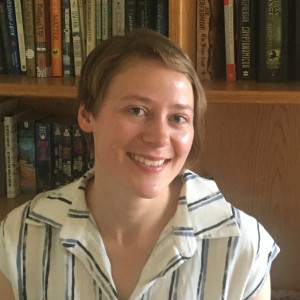
Kaley Curtis (Goldberg Fellow)
PsychologyKaley Curtis is a third-year doctoral student in UC Berkeley’s Psychology Department. She received her Ed.M. from the Harvard Graduate School of Education and her B.A. in Education and Public Policy from Brown University. Her research examines how diverse parents socialize and teach their young children, and the ways in which these behaviors influence children’s development. As a GGSC graduate research fellow, Kaley will explore how parent emotion talk longitudinally influences Chinese American immigrant children’s social and emotional development.
-

Omar Davila Jr.
EducationOmar Davila Jr. is a Ph.D. candidate in the Graduate School of Education at UC Berkeley. His research interests highlight the nexus of discourse, education policy, and boys of color. As a GGSC research fellow, Omar will examine the way political discourses construct notions of merit and, in turn, the way high-performing Latino boys navigate academic settings successfully. The implications of this work are two-fold: (1) understand the way merit goes beyond cognitive skill sets into a more political, social, and performative realm, and (2) understand the way Latino boys develop resilience, overcome urban conditions, and achieve academic success.
-

Monica Ellwood-Lowe (Hornaday Fellow)
Developmental PsychologyMonica Ellwood-Lowe is a second-year doctoral student in Developmental Psychology at UC Berkeley. Previously, she completed a bachelor’s degree in Psychology from Stanford University. Monica is broadly interested in how children adapt their learning strategies to fit the demands of their early environments. As a GGSC fellow, Monica will study whether socioeconomically disadvantaged children, at risk for under-performing in school, develop particular cognitive skills in early life. She hopes this line of research will contribute to a better understanding of children’s resilience, strength, and adaptability, which ultimately may be harnessed to combat the structural factors that contribute to the academic achievement gap.
-
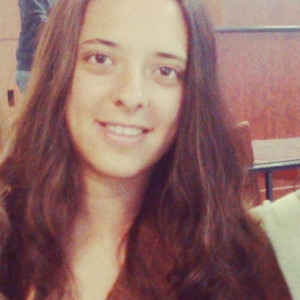
Blanca Gamez-Djokic (Poulter Fellow)
Social and Cultural StudiesBlanca Gamez-Djokic is a sixth-year doctoral student in the Social and Cultural Studies program at the School of Education. Blanca has a B.A. in Sociology and Anthropology from Swarthmore College, and an Ed.M. from Harvard Graduate School of Education. Blanca’s doctoral research is interested in the affective worlds of young people; the way emotions and affects circulate in schools; and how teachers and students negotiate and leverage emotions to understand processes of racial formation. As a GGSC research fellow, Blanca will conduct a comparative ethnographic examination of two high schools to investigate the broad spectrum of emotions students experience in school and how students leverage emotions to navigate racializing practices and ideologies. Blanca’s dissertation research is particularly interested in expanding discourses around youth-of-color learning experiences beyond the affective frames of resilience and trauma.
-

Ozge Ugurlu
Social-Personality PsychologyOzge Ugurlu is a first-year graduate student at the Social-Personality Psychology program at UC Berkeley. She received her B.A. in Linguistics and Sociology at Middle East Technical University in Turkey. Her research explores developmental and individual difference processes in emotion recognition, and how they might be related to emotion- and self-regulation ability. As a GGSC research fellow, Ozge will investigate (a) how emotion and affective processes are linked with self-control and willpower, and (b) social-developmental precursors of delayed gratification by examining family dynamics. This project aims to clarify parental best practices in communicating self-control strategies to children and, thus, offer opportunities for further interventions and trainings.
-
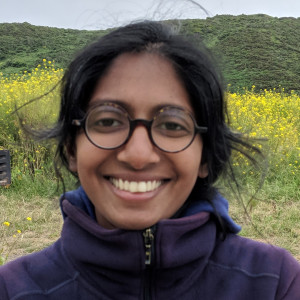
Leela Velautham
Education in Math, Science, and TechnologyLeela Velautham is a third-year graduate student in the Education in Math, Science, and Technology program at UC Berkeley. She received her M.Chem at Oxford University and an M.A. in chemistry from UC Berkeley. She is interested in better characterizing how people perceive and reason about anthropogenic global warming, in order to develop interventions that increase knowledge and acceptance of the issue. As a GGSC graduate research fellow, she will explore ways to cultivate hope about anthropogenic global warming, and investigate whether there is a relationship between feeling hopeful about our ability to tackle this phenomenon and an increased likelihood of engaging in intrinsically motivated, pro-environmental behavior.
2017-2018 Fellows
-
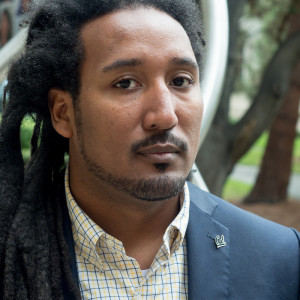
Malik Boykin
Social-Personality PsychologyMalik Boykin is a fifth-year Social-Personality doctoral candidate at UC Berkeley. He received his M.A. in Social-Organizational Psychology from Teachers College Columbia University and his B.S. in Psychology from the University of Maryland University College (UMUC). Malik’s work focuses on perceptions of Historically Black Colleges and Universities (HBCUs) as symbolic proxies for perceptions of African Americans at the group level. As a GGSC graduate fellow, Malik will focus on distributive justice in resource allocation for HBCUs. Specifically, he plans to study whether highlighting HBCUs’ positive contributions to American culture and the American economy could increase American altruism toward these historically underfunded academic institutions.
-
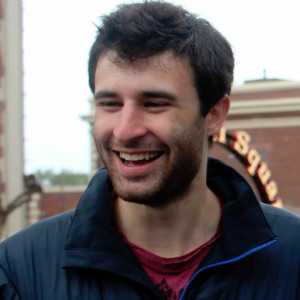
Alan Cowen
PsychologyAlan Cowen is a Ph.D. candidate in the Department of Psychology at UC Berkeley. His research integrates emotion science and neuroscience with crowdsourcing and new statistical tools to study how emotional states are structured within a multidimensional space. As a GGSC Graduate Research Fellow, Alan will investigate how subjective well-being can be modeled in terms of (a) distinct facets of positive emotional experience such as awe, compassion, gratitude, and rapture, and (b) diverse moral, cultural, and religious values. A key application of this project will be a tool that generates personalized roadmaps to well-being that leverage the shared wisdom and experiences of tens of thousands of people.
-
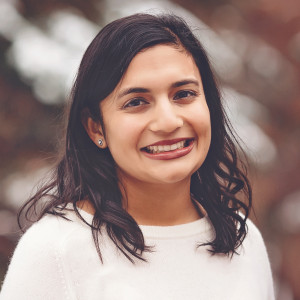
Rupa Robbins
School PsychologyRupa Robbins is a doctoral candidate in the School Psychology program at UC Berkeley. She received her B.A. in psychology from Stanford University and her M.A. in education from UC Berkeley. Before beginning graduate school, Rupa worked as an elementary school teacher in Washington, D.C. Rupa’s primary research interests are in social-emotional learning and intergroup contact interventions in adolescence. As a Hornaday Graduate Fellow, Rupa will implement a cross-group friendship intervention in an early adolescent population. She will study the effects of the intervention on empathy, perspective taking, and outgroup attitudes.
-
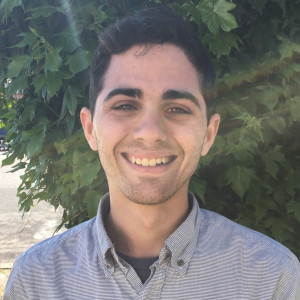
Benjamin Swerdlow
Clinical ScienceBenjamin Swerdlow is a third-year graduate student in the Clinical Science program at UC Berkeley. He received his B.A. in Psychology and English at Wesleyan University. His research explores dyadic emotional processes in relation to psychopathology and well-being. Specifically, his work examines interpersonal emotion regulation, the processes whereby individuals influence one another’s emotions. As a GGSC Research Fellow, Benjamin plans to use ambulatory acoustic recording technology to capture real-world instances of interpersonal emotion regulation occurring within romantic couples. He aims to examine how behavioral dimensions of interpersonal emotion regulation relate to individual psychological well-being and relationship satisfaction.
-
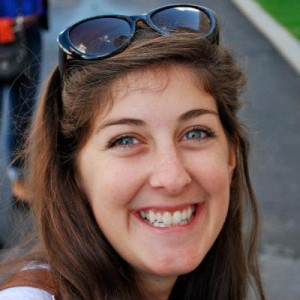
Jenna Wells
Clinical ScienceJenna Wells is a second-year doctoral student in the Clinical Science program at UC Berkeley. She received her B.S. at Tufts University. Her research examines the biopsychosocial benefits of experiencing positive emotions during dyadic social interactions. As a GGSC Graduate Research Fellow, she will explore the role of positive emotions in the development of psychopathology in caregivers of patients with dementia. Ultimately, she hopes to leverage this knowledge to design treatments to alleviate caregivers’ emotional burden.
2016-2017 Fellows
-
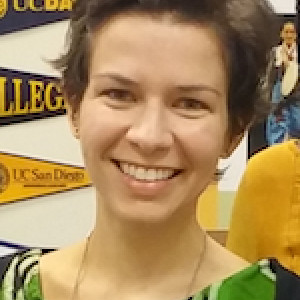
Lindsay Bahyam
SociologyLindsay Bayham is a Ph.D. candidate in the Department of Sociology at UC Berkeley. Her research examines economic and social development in West Africa, focusing on the connections between development and social networks, culture, and financial behavior. Lindsay’s dissertation project investigates variation in the norms and practices surrounding relational obligations and informal financial exchange in Accra, Ghana, looking at how cultural and social context shape Ghanaians’ ideas about generosity and obligation. She has spent more than three years in Ghana since she first visited in 2007, including a stint as a Fulbright-Hays Fellow.
As a GGSC Graduate Research Fellow, Lindsay will implement a novel cross-cultural qualitative coding exercise, and conduct further interviews to understand how generosity and obligation are affected by policymakers’ and NGOs’ growing efforts to formalize economic behavior through savings and loans.
-
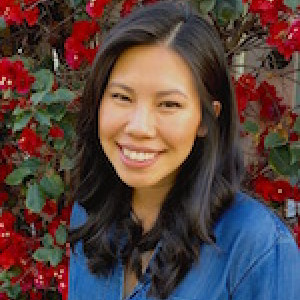
Sarah Chung
Clinical ScienceSara Chung is a fourth-year doctoral student in the Clinical Science program at UC Berkeley. She received her B.A. from UC Berkeley and her M.A. from Teachers College, Columbia University. Her research explores the influence of culture on the development of psychopathology and competence in children and adolescents via coping, appraisal, and family socialization. As a GGSC Graduate Research Fellow, Sara will investigate how parenting practices during parent-child conflict can impact children’s long-term development among Chinese American immigrant families. Her research aims to contribute to culturally competent interventions designed to facilitate open communication and cohesion among immigrant families.
-
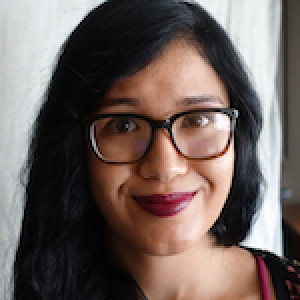
Amanda Perez-Ceballos
Social-Personality PsychologyAmanda Perez-Ceballos is a second-year Social-Personality doctoral student at UC Berkeley. She received her B.A. in Psychology at UC Berkeley. Her research revolves around implicit biases, prejudice, and the benefits of cross-group friendship. Specifically, her work looks at utilizing technology to foster online cross-group friendships as a means to reduce implicit biases. As a Greater Good Science Center Research Fellow, Amanda will systematically and empirically explore the potential role that the Internet can play in facilitating cross-group contact and friendships. She plans to study the underlying mechanisms and causal effects of the formation of positive online cross-group friendships.
-

Kimberly Long
NeuroscienceKimberly Long is a fourth-year Ph.D. candidate in the lab of Daniela Kaufer in the Helen Wills Neuroscience Institute. Her work seeks to understand the neural basis of empathy and how the brain discriminates among conspecifics to target prosocial behavior towards members of one’s own group. Using a rodent model of helping behavior, her project will seek to uncover the developmental time point at which social discrimination arises. In addition, she will explore how early life stress affects motivation for helping behavior, ultimately providing a better understanding of how early life experience can shape human empathy.
2015-2016 Fellows
-

Yang Bai
PsychologyYang Bai is a fourth year doctoral student in the social-personality program at UC Berkeley. She received her B.A. from Beijing Normal University in China. Her research focuses on understanding the cultural impact on emotion perception, expression, and experiences. She has specific interests in understanding how people from different cultures experience the positive emotion of awe. As a Hornaday Graduate Fellow, Yang will explore whether experiences of awe reduce racial stereotyping among Whites and African Americans.
-

Dyan Connelly
Clinical ScienceDyan Connelly is a third year Clinical Science doctoral student at UC Berkeley. She received her B.A. from St. Joseph’s College, NY. Dyan is interested in understanding the nature of interpersonal processes as they occur in romantic relationships, and how the reciprocal influences between such relationships and behavior, emotions, and well-being unfold over time. Her current research examines the relationship between connectedness and well-being in spousal caregivers of dementia patients, a highly vulnerable population at risk for feeling disconnected and isolated from others. Her research will also examine factors that protect against loss of connectedness in spousal caregivers over time (i.e., disease type, patient functioning, caregiver characteristics).
-
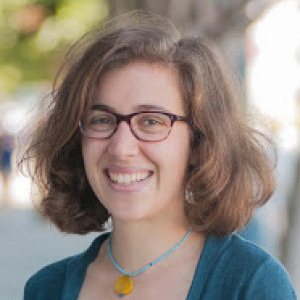
Alison Cohen
Education and HealthAlison Cohen is a Ph.D. candidate in Epidemiology in the UC Berkeley School of Public Health. She received a B.A. in Education Studies and Community Health at Brown University, and a M.P.H. at UC Berkeley. Her research examines links between education and health, as well as evaluating education, health, youth development, and civic engagement initiatives. As a GGSC Graduate Research Fellow, and for her dissertation, she is examining links between characteristics of the school setting, including school climate, class size, and student body composition, and health and well-being across the lifespan.
-

Jessica Naecker
Psychology and EducationJessica Naecker is a 5th-year graduate student in UC Berkeley’s School Psychology doctoral program in the Graduate School of Education. She received her B.A. from UC Berkeley and her Ed.M. from Harvard University. Jessica’s research focuses on the forces that operate on children’s decisions to behave either prosocially or aggressively. As a Hornaday Graduate Fellow, Jessica will investigate how elementary school children reason about social inequality and how reasoning about social inequality is associated with children’s social behavior.
-

Jia Wei Zhang
PsychologyJia Wei Zhang is a wanderlust who discovered his passion for psychology observing human behaviors through his camera. He is grateful for his supporters during his education at CCSF, SFSU, and now, at UCB. He and his collaborators will combine naturalistic observations and computational modeling to test whether gratitude spreads and if such spread of gratitude will promote prosociality within small-scale social networks and large-scale artificial social networks. The implication is that gratitude interventions may impact people at a distance and shift the cost-benefit analyses of giving by converting competitive networks into cooperative networks through the spread of gratitude.
-
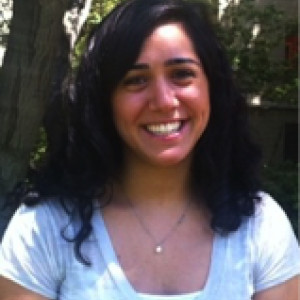
Sanaz Mobasseri
Business and PsychologySanaz Mobasseri is a fourth year doctoral student in Haas’ Management of Organizations PhD program. She researches emotions, culture, and cognition in social networks. As a Hornaday Graduate Fellow, Sanaz will investigate how an individual’s sense of social belonging affects social network formation, the building blocks of community. She is also interested in how social belonging influences emotional expression and the ways that people communicate with each other. She plans to study impacts on proximate social ties – such as friends and coworkers – as well as contagion throughout a network.
2014-2015 Fellows
-
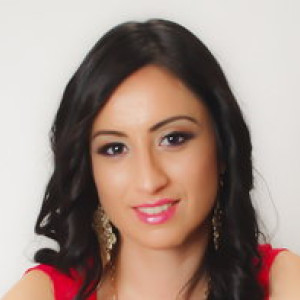
Mara Chavez-Diaz
EducationMara Chavez-Diaz is a Chancellor’s Fellow and Ph.D. Candidate in the Social and Cultural Studies program at UC Berkeley. Her research study examines youth organizations that express and carry out an explicit healing approach in order to better understand the kinds of healing processes that make it possible for urban youth of color to heal from trauma and nourish their sense of hope that social change is possible. Her motivation to explore this topic stems from her own personal experiences in witnessing both grief and resilience among the youth whom she has worked with over the past ten years in Oakland. She received her B.A. in Ethnic Studies from Mills College and a MA in Social and Cultural Studies from UC Berkeley.
-
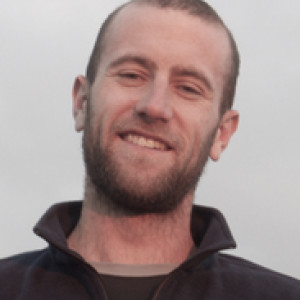
Josh Neff
Joint Medical ProgramJosh is a second-year medical student in the UC Berkeley-UCSF Joint Medical Program. He studied social anthropology as an undergraduate at Harvard, where he grew interested in the effects of large-scale social structures on individual health outcomes. His current research explores the connection between healthcare providers’ “structural competency”—their awareness of the social, political, and economic influences on the health of their patients, and their knowledge of possible ways to respond to these health effects—and their empathy for underserved patients. As a Hornaday Fellow, Josh will be working with supervising doctors at Oakland’s Highland Hospital to design, implement, and evaluate the first-ever structural competency curriculum for medical residents.
-

Andrew Peckham
PsychologyAndrew Peckham is a 4th-year graduate student in the UC Berkeley Department of Psychology’s Clinical Science doctoral program. He received his B.A. from Boston University and his M.A. at UC Berkeley. Andrew’s research focuses on the bi-directional relationship between cognition and emotion regulation in mental illness, with a particular focus on understanding how these factors contribute to the course of mood disorders. As a Hornaday Graduate Fellow, Andrew will work with a collaborative team of researchers from UC Berkeley and UC San Francisco to test a novel group intervention designed to increase healthy positive emotion in people with bipolar disorder.
-
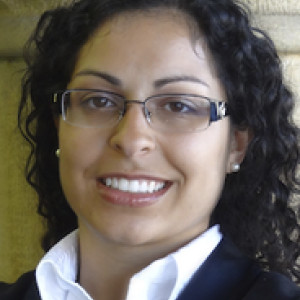
Hooria Jazaieri
PsychologyHooria Jazaieri is an Assistant Professor of Management at the Leavey School of Business at Santa Clara University. Prior to joining LSB, she was a Postdoctoral Fellow at the Kellogg School of Management at Northwestern University. She received her Ph.D. from the University of California, Berkeley in Social Psychology, her MA from Santa Clara University in Counseling Psychology, and her BS from the University of Washington in Psychology. Outside of academia, she has professional work experience in a variety of industries including tech, consulting, and mental health.
Hooria has done extensive work with the Greater Good Science Center over the years and her research examines individual reputation and emotion. She studies the process of how people gain, lose, and recover their reputations, and how reputational information is stored and communicated in networks. She speaks on how business can be a positive force on society with a focus on how mindfulness, gratitude, and positive relationships can have a huge impact on organizational performance. Through a variety of settings ranging from baseball fields, sorority houses, wineries, and Japan, her work examines the content, structure, and dynamics of individual reputation. Her work on emotion centers on discrete emotions (gratitude, hope, compassion, awe) and how people regulate their emotions and the emotions of others. She takes a multi-method approach to her research, employing both qualitative and quantitative methods in experimental laboratory and field settings. Her work has been published in leading academic journals in the fields of management and psychology. In 2022, she was selected by Poets & Quants as one of the Top 50 best business professors. In 2023, she was awarded the Outstanding Faculty Award from the ACE Leadership Program.
-
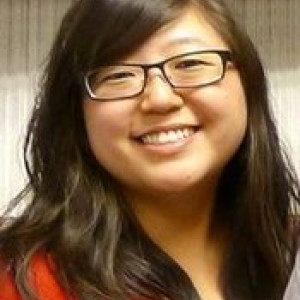
Jasmine Mote
PsychologyJasmine Mote is a fourth year clinical science doctoral student at UC Berkeley. She completed her B.A. in Psychology at Oberlin College. She is interested in studying how social interactions can increase positive emotion, improve the quality of life, and influence motivated behavior in people with and without mental illness. As a Hornaday Graduate Fellow, she will conduct a study looking at whether capitalization, or the process of sharing positive life events to a supportive listener, is related to an increased likelihood of pursuing future goals in a group of people who are at high risk for developing schizophrenia.
2013-14 Fellows
-
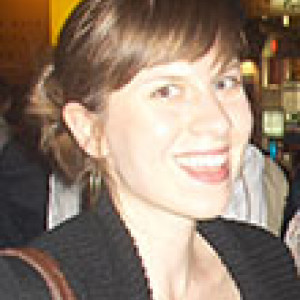
Sarah Wheeler
EducationSarah Wheeler is a doctoral candidate in the School Psychology program at UC Berkeley. She worked for several years as a special education teacher, and currently practices psychology in schools, in addition to teaching at the graduate level and working on her dissertation research. Her research study focuses on validating a social-emotional well-being screener for early-elementary aged children and exploring the utility of such a tool versus teacher referral. The ultimate goal of this work is to help schools become more compassionate communities for students who struggle with issues that are difficult to identify.
-

Neil Zhang
UC Berkeley-UCSF Joint Medical ProgramNeil is a second year medical student in the UC Berkeley-UCSF Joint Medical Program. As an undergraduate at Berkeley working with homeless youth, he realized the importance of the larger sociocultural context to individuals’ health. As a result, his research interests rest in broad-based social determinants of health, particularly in how people perceive their abilities to meet their goals. As a Hornaday Graduate Fellow, Neil will collaborate with Professor Colette Auerswald to study the sense of hope among homeless youth: What are some origins and modifiers of hope? In the future, Neil plans to become a physician to serve those most in need.
-
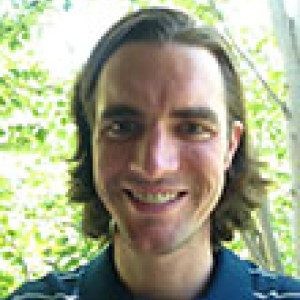
Craig Anderson
PsychologyCraig L. Anderson is a fourth year doctoral student in the Social-Personality area. He received his B.A. from the University of Denver in 2007. His interests lie in emotions and emotion regulation and his favorite emotion (to both experience and study) is awe. Recognizing that much can be learned about emotions directly from the body itself, Craig uses psycophysiological methods to supplement participant self-report in his research. His Hornaday Graduate Fellowship project integrates these interests in an investigation of how positive interventions that incorporate experiences of awe affect salivary measures of immune function.
2012-13 Fellows
-
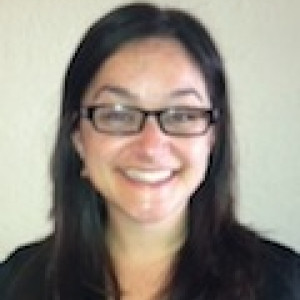
Sarah Accomazzo
Social WelfareSarah Accomazzo is a PhD candidate in the Department of Social Welfare. After completing a History degree at UC Berkeley, she took several years off to work in helping settings before returning to UC Berkeley for a Master’s in Social Work. As a Hornaday Graduate Fellow, Sarah will be working on her dissertation: developing and administering a scale to measure clinicians’ strengths-based approaches to service provision with clinicians in a public mental health system for youth, and analyzing a secondary, longitudinal data set of youth outcomes from the same system. Sarah enjoys staying connected to macro-level research, practice, and policy through her ongoing work as a research assistant for the San Francisco Department of Public Health’s Children’s System of Care.
-
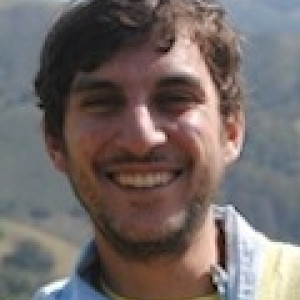
Daniel Catterson
PsychologyDaniel Catterson is a fifth-year doctoral student of personality and social psychology. He received his BA from the University of Texas at Austin in 2008 as a Psychology and Plan II Honors Major. Daniel’s work examines how people’s perceptions of themselves and others can influence (and be influenced by) emotion processes and social status. For his Hornaday Graduate Fellowship, Daniel will begin a longitudinal and multi-method study of the frequency, authenticity, and consequence of pro-social emotion expression on Facebook. When not writing about himself in the third-person, he enjoys cooking and exploring the Bay Area and beyond. He lives in Oakland with his wife and cat
-
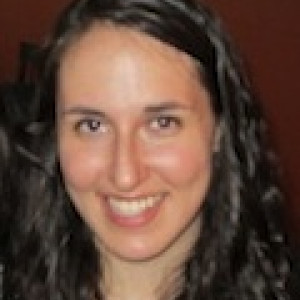
Brett Ford
PsychologyBrett Ford is a fourth-year doctoral student in the social-personality program studying emotion and well-being. She did her undergraduate and masters work in psychology at Boston College and began her doctoral work at the University of Denver. Brett is interested in how emotions and the context in which they are experienced interact to determine psychological health. For her Hornaday Graduate Fellowship, she is conducting a study examining resilience and risk in healthy aging. Specifically, whether people who are more physiologically sensitive to their environment benefit more from experiencing positive social environments yet also suffer more from experiencing negative social environments
-

Minah Jung
MarketingMinah is a third year doctoral student in the marketing group at Haas School of Business. Minah studies consumer judgment and decision-making and prosocial behavior. Working with her academic advisor, Leif Nelson, she is currently studying how consumer elective pricing works in markets. As a Hornaday Graduate Fellow, Minah will collaborate with local businesses and non-profit organizations in the Bay Area to investigate how pay-it-forward pricing works. She is interested in studying commercial environments that can strengthen social ties and increase people’s well-being. Minah enjoys going to concerts, watching cartoons, and hiking in California
-

Alexandra Main
PsychologyAlexandra Main is a fifth year graduate student in Developmental Psychology. She received her B.A. from Brandeis University in 2008. She currently works under the supervision of Professors Qing Zhou and Joseph Campos studying empathy, emotion regulation, and cultural influences on children’s development. Her current research examines the role of cultural orientations among Chinese American children from immigrant families in the development of empathy and prosocial responding. She is also conducting research on the role of empathy in parent-adolescent conflict resolution.
-
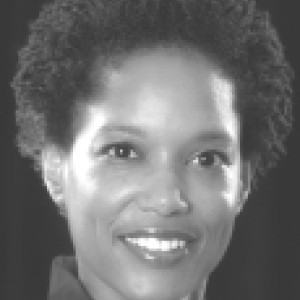
Michaela Simpson
PsychologyMichaela Simpson is a second-year graduate student in the clinical science psychology program. She received her BA from Stanford University, where she majored in international relations. Formerly an observer of the behavior of nations, Michaela now focuses on the behavior of humans. Her current interests include studying sensory processing and hedonic judgment and their relation to behavior, brain, and culture. As a Hornaday Graduate Fellow, she intends to pursue her interest in the biological bases of kind, helpful—or “pro-social” behavior—looking specifically at the biological response to distress as a way to understand pro-social behavior. An avid dancer, pianist, and traveler, Michaela revels in the realms of exploration and discovery.
-

Trinh Tran
SociologyTrinh Tran is a Ph.D. candidate in the department of sociology. Her dissertation explores whether and how neighborhoods shape the quality and pattern of student friendships and interactions with teachers. By comparing the social lives of students who attend magnet vs. neighborhood high schools, she seeks to understand the extent to which students are able to form ties with other students and with teachers outside of their neighborhood boundaries. Trinh has worked as a school reform facilitator in various Bay Area elementary public schools. She received her BA from the University of Chicago and her MA in sociology from Berkeley.
2011-12 Fellows
-
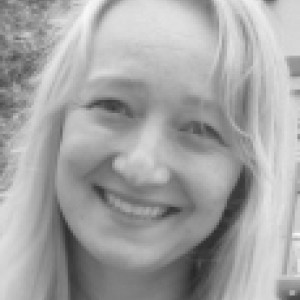
Jennifer Stellar
PsychologyAt the time she received the top Hornaday Graduate Fellowship for the 2011-12 academic year Jennifer Stellar was a graduate student in social psychology at UC Berkeley. She received her BA from the University of Pennsylvania in 2006 and spent time as a researcher at the Solomon Asch Center for Ethnopolitical Conflict. Her work has primarily focused on compassion and the physiological changes in the body that accompany this critical prosocial emotion. With her fellowship she has begun to explore how these physiological responses associated with compassion can promote better health outcomes for individuals, especially for those in caretaking roles. Her research is concentrated on a particular component of the parasympathetic nervous system, known as the vagus nerve, which is believed to be activated when an individual feels compassion. The first step of her work has been to demonstrate that compassion, compared to other positive and negative emotions, activates the vagus nerve. The second step has been to show that the compassion provides important health benefits through activating the vagus nerve. Over the course of the year Jennifer and her fellow researchers have conducted three studies that suggest the experience of compassion uniquely activates the vagus nerve.
-
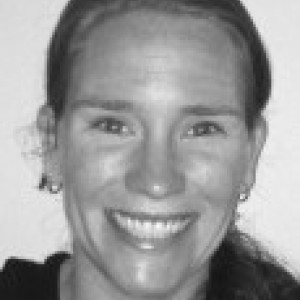
Nora Broege
SociologyNora’s PhD work combined seminal theories of sociology of education, social psychology and race/ethnicity. Her dissertation, “Race and the Subjective Experience of Education: Micro-Sociological Explanations of Adolescent Achievement”, sought to identify how students’ subjective experiences affect achievement outcomes among 11th graders enrolled in Oakland, CA public schools. Using a sample of 200 randomly selected Oakland Unified School District 11th graders, Nora examined differences in subjective well-being, stereotype threat, self-esteem and realism and how these differences vary by racial/ethnic identity. In order to capture a more nuanced picture of the lives of her students, Nora’s study tracked students over the course of a day for two consecutive weeks with their teachers, in the classroom, at school, at home, and anywhere else they went through the Experience Sampling Method (ESM), a type of “time diary” technique that involves gathering data from participants via preprogrammed electronic devices (Ipod Touch devices) throughout the day. Nora holds a BA in sociology from Rutgers University and an MA in social science from the University of Chicago.
-
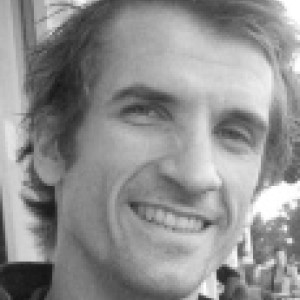
Audun Dahl
PsychologyAt the time of his fellowship, Audun Dahl was a third-year doctoral student in the change, plasticity, and development program at UC Berkeley, studying the early development of morality. He did his undergraduate work in psychology and philosophy at the Norwegian University of Science and Technology, and received his master’s degree philosophy from the University of Oslo. Audun is interested in how very young children learn and make use of moral and other behavioral norms. For his Hornaday Graduate Fellowship, he is conducting home observations of how parents and children communicate about norms—emotionally, verbally, and behaviorally—in the second year of life. Three forms of transgressions are especially prevalent in the second year: moral transgressions (involving harm to others), prudential transgressions (involving harm to the child), and pragmatic transgressions (involving issues of inconvenience, such as spilling or breaking objects). Audun is studying how these transgressions have different meanings for parents of young children.
-

Eve Ekman
Social WelfareEve Ekman is a San Francisco native who holds a Masters of Social Work from UC Berkeley and at the time of her fellowship was pursuing her Ph.D. in the university’s School of Social Welfare. She has been a crisis counselor in the emergency room at San Francisco General Hospital since 2006. For her Hornaday Graduate Fellowshp, Eve began working with correctional officers in San Mateo Department of Probation, exploring the relationship between burnout and empathy. Her study used mixed methods that included participant observation, focus groups, in depth interviews, survey assessment of burnout, quality of life and empathy and demographic data.
-
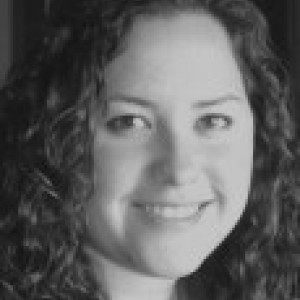
Katrina Martin
EducationAt the time of her fellowship Katrina Martin was a fourth-year graduate student in the Joint Doctoral Special Education Program between UC Berkeley and San Francisco State University (SFSU). She completed her undergraduate degree at the University of Puget Sound and her master’s degree in early childhood special education at SFSU. Katrina’s interests surround empathy understanding and children with Autism. Specifically, what role does the mirror neuron system play in one’s awareness of other’s emotions, and what are the potential results of a dysfunction of this system? Katrina’s Hornaday Graduate Fellowship study seeks to fill a gap in the literature between what young children, with and without ASD, “feel” internally when seeing someone express a strong emotion, and their behavioral response. Currently, we know that children with ASD respond to other’s distress with a different behavioral pattern. However, it is unclear where the breakdown occurs, and what leads to this different pattern of behavior.
-
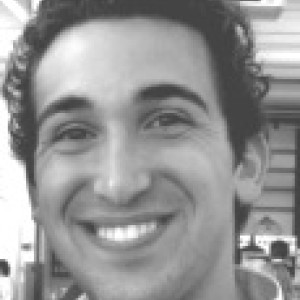
Samuel Sakhai
PsychologyAt the time of his fellowship, Samuel Sakhai was a doctoral student in the behavioral neuroscience area of psychology. After transferring from Pierce College in Los Angeles, where he lobbied for easier access to higher education, he received his BA from UC Berkeley in 2007. For his Hornaday Graduate Fellowship he used an animal model to investigate how early life environmental variables such as maternal care can program variation in stress physiology and behavior. He found that as adults, rodents from environments with low maternal care have altered stress physiology compared to animals from high maternal care backgrounds. Despite these powerful programming effects, he showed that through behavioral training, it is possible to lessen stress responsivity and anxious behavioral phenotypes that were engrained via early life. His results suggest that the biological residue of early life cannot be washed away, but through intervention, behavioral change is possible.
2010-11 Fellows
-
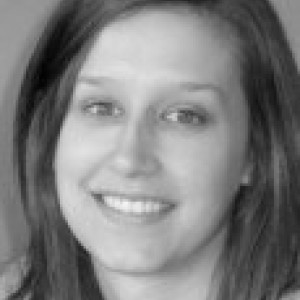
Janelle Caponigro
PsychologyJanelle Caponigro is a clinical science graduate student studying emotional functioning and psychopathology. She completed her undergraduate degree at the University of Pittsburgh, where she studied social cognitive impairments in individuals with schizophrenia and bipolar disorder. As a Hornaday Graduate Fellow, she conducted a group intervention study for individuals with schizophrenia, with the goal of decreasing negative symptoms and promoting social well-being. Participants in the study learned skills to boost their positive emotions and positive experiences. Janelle’s results suggest that individuals with schizophrenia can and do benefit from engaging in practices that increase positive emotions, in ways similar to those already documented among people without mental illness.
-

Neha John-Henderson
PsychologyNeha John-Henderson is a doctoral student in the behavioral neuroscience area. She completed her undergraduate studies in Sociology at UC Berkeley. Her research explores the relationships between socioeconomic status, implicit biases, immune system profiles, and ultimately health outcomes. Specifically, she studies how deeply rooted, subconscious—or “implicit”—class biases moderate the extent to which an individual’s socioeconomic status predicts health outcomes. Prior research shows that the experience of chronic psychological stress alters activity of the immune system in a manner that places individuals at higher risk for numerous diseases. Through her Hornaday Graduate Fellowship research, Neha found that individuals with more stress from self-perceived low social status are the most vulnerable to low immune system functioning, and that high self-perceived social status appears to have protective effects on the immune system. These findings also suggest that interventions for decreasing implicit social class bias may offset inflammation processes and ultimately improve health.
-
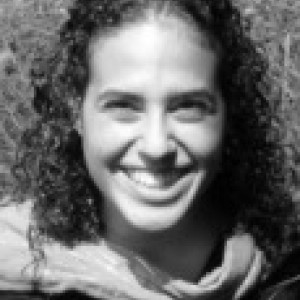
Na’amah Razon
Medical AnthropologyNa’amah Razon grew up in Israel and the United States, and has continued to move between the two countries for her entire life. She is currently an MD/PhD student in the UCSF-UC Berkeley’s Joint Program in Medical Anthropology. For her Hornaday Graduate Fellowship, she examined the role of medical care in shaping the relationship between the Bedouin and Jewish communities in southern Israel. Data from her research highlights for researchers and policy makers that health care reform and health care practices are culturally specific, and carry with them historical and contemporary definitions of health, disease, compassion, and equality. Na’amah looks forward to practicing medicine and anthropology in the future, both nationally and internationally, and to finding ways for medicine to help heal individuals and build strong communities.
2009-10 Fellows
-
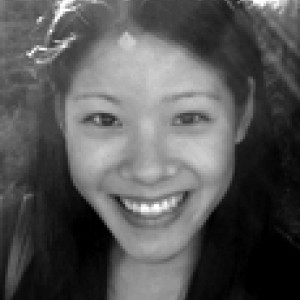
Erica Lee
PsychologyErica Lee is a doctoral student in the Clinical Science area. She completed her undergraduate studies in psychology at Cornell University, and following graduation, worked at Harvard Medical School studying adolescents at risk for developing psychotic disorders and cognitive impairment in schizophrenia. Erica’s research focuses on the influence of neighborhood and school environment and parent-child relationships on the development of Chinese American immigrant children. As a Hornaday Graduate Fellow, she is focusing on how socioeconomic status and culture-specific dimensions of neighborhood influence child adjustment. Ultimately, Erica is interested in developing socio-culturally sensitive measures of neighborhood and school context for immigrant children and families, with an emphasis on identifying ways to boost resilience in children facing adversity.
-
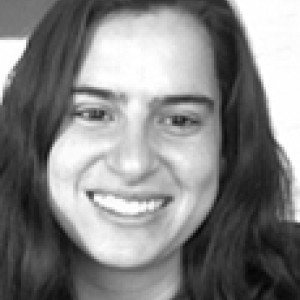
Laura Saslow
PsychologyLaura Saslow (Princeton University, ‘00) is a graduate student in the Social/Personality area. Her research as a Hornaday Graduate Fellow focuses on better understanding the genetic, physiological, behavioral, and self-report components of affection, prosociality, and stress. Her other research projects include work on self-reported affection in romantic couples, the association between stress and language, and the link between facial dominance and self-esteem.
-
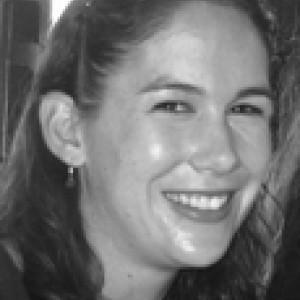
Katherine Saxton
Public HealthKatherine Saxton is a doctoral student in Epidemiology. She received her BA from Brown University in 2002 and her MPH from UC Berkeley in 2006. Her research focuses on the biological embedding of social experience and the ways in which early life stress can affect health throughout life. As a Hornaday Graduate fellow, she is focusing on the ways in which the social environment affects stress reactivity and cognitive ability. Using a rodent model of social hierarchy, Katherine will study how social experience may impart resilience or vulnerability to later-life stress. Katherine also coaches high school cross country and track and field.
-
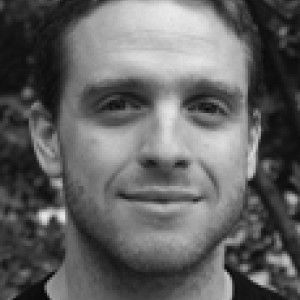
Aaron Shaw
SociologyAaron Shaw is a Ph.D student in the Sociology Department at the University of California, Berkeley. His current research looks at the institutional aspects of cooperative systems online and the power dynamics of large-scale collaborative networks. During 2008-2009, Aaron was a Research Fellow at the Berkman Center for Internet and Society at Harvard University, where he managed the Online Cooperation Research project together with Professor Yochai Benkler. Aaron’s has also studied the politics of development and Free and Open Source Software in Brazil, where he conducted interviews during 2007 and 2008. His other interests include distributed research methods, political economy, and sociological theory.
2008-09 Fellows
-
Madeleine Goodkind
PsychologyMadeleine Goodkind, a clinical psychology graduate student, studies emotional functioning in both healthy aging patients and those with neurodegenerative diseases. She has conducted memory research at Wesleyan University and Alzheimer’s disease research at the New York State Psychiatric Institute. She has examined how emotion regulation abilities are differentially affected in neurodegenerative disorders. More recently, she became interested in how we understand others’ emotions and in empathic processes more generally. As a Hornaday Graduate Fellow she studied emotional understanding, emotional contagion, and compassionate behavior in patients with neurodegenerative disorders.
-
Anett Gyurak
PsychologyAnett Gyurak is a graduate student in psychology and a Hornaday Graduate Fellow. Following the completion of her undergraduate studies in psychology at Eotvos Lorand University in Budapest, Hungary, she moved to California with her family. Anett’s research involves understanding the neurological, genetic, physiological and behavioral concomitants of emotion regulatory ability. As a Hornaday Graduate Fellow, she investigated the physiological, neural and genetic underpinnings of the ability to understand other people’s emotions and to extend a helping hand. In addition to better understanding the subtle process of emotion regulation, Anett’s hope is to design intervention techniques aimed at cultivating better emotion regulatory abilities.
-
Anna Luerssen
PsychologyAnna Luerssen, a New York native, joined the psychology doctoral program in 2007. She completed her undergraduate work in psychology and Latin American studies at New York University. Anna’s research focuses on the basic processes and outcomes of self-control in childhood and in adult interpersonal relationships. Anna’s research as a Hornaday Graduate Fellow focused on teasing apart the mechanisms underlying early self-control abilities which have been shown to have lasting implications for social functioning throughout life.
-
Andrea Stier
PsychologyAndrea Stier is a psychology graduate student currently studying Attention-Deficit/Hyperactivity Disorder (ADHD) and romantic relationships. Although girls with ADHD are at risk for deficits in romantic relationships as well as peer relationships, girls who are able to maintain positive romantic relationships in adolescence are likely to be protected from many of the negative outcomes seen in this group (e.g. long-term relationship difficulties, depression, anxiety, delinquency). Her research project desired to improve our understanding of the underlying relationship factors that protect or are detrimental to the girls’ well-being. She worked to identify potential mechanisms underlying the contributions of these relationship factors (e.g. self-esteem, quality of peer relationships) in order to eventually design more effective interventions for this population.
-
Jocelyn Sze
PsychologyJocelyn Sze is a third year graduate student in the clinical psychology. Originally from Cambridge, Massachusetts, Jocelyn has two main research foci: (1) the development of prosocial emotions (particularly empathy and compassion) across the adult lifespan, and (2) the mechanisms through which body-awareness meditation may improve emotional well-being. Jocelyn values the incorporation of socio-cultural perspectives to both qualify and enrich her questions and findings, both in testing the universality of specific psychological principles and in understanding how different cultural groups experience emotion. Ultimately, Jocelyn is interested in developing and validating socio-culturally sensitive interventions that may promote emotional well-being in adults, with an emphasis on identifying the mechanisms of change within a particular intervention.
2007-08 Fellows
-
Annaliese Beery
NeuroscienceAnnaliese Beery, a neuroscientist, is happy to be back in her hometown after a few years in Hawaii as a high school biology, chemistry, and AP environmental science teacher. Annaliese is a Williams College graduate and a former software engineer. Annaliese worked on highly innovative research to further understanding of positive social behavior by studying non-sexual social relationships and the neuropeptide oxytocin, which is implicated in maternal bonding, monogamy, and social recognition.
-
Sarah Garrett
SociologySarah Garrett, a sociologist, grew up in Sacramento, CA. She did her undergraduate work at UC San Diego, where she majored in sociology and French literature. Before coming to Berkeley, Sarah worked in Washington, DC, at a non-profit social science research center studying positive parent-youth relationships, adolescent social development and, more generally, child and youth thriving. In her research, Sarah studied trends and demographics in subjective well-being in American youth as well as the connection between subjective well-being and altruism. Applied, her findings will recommend more effective ways for families, schools, and community programs to foster prosociality in youth.
2006-07 Fellows
-
Mario Aceves
PsychologyA Bay Area native, Mario Aceves is completing his graduate studies in Psychology. Prior to his work at Berkeley, Mario provided educational services for children diagnosed with autism and other developmental disabilities. Mario is examining how parents pass down knowledge and attitudes about mental illness to their children through a series of experimental and observational studies. This line of research will influence early intervention programs intended to promote understanding and compassion while simultaneously preventing the development of stigmatizing attitudes towards mental illness. The stigma of mental illness continues to burden our society, affecting victims of mental disorders and their family members and close friends. An overall misunderstanding and endorsement of stereotypes by members of the general public contributes heavily to the perpetuation of mental illness stigma. Although a great deal of interest has been taken into the nature of stigmatizing attitudes among adults, little is known regarding how negative views towards people with mental illness originate and develop across childhood and adolescence. This project desired to form a better understanding of the development of stigmatizing attitudes by investigating socializing factors contributing to a child’s understanding and attitudes towards mental illness.
-
Naazneen Barma
Political ScienceFor countries that have undergone violent civil conflict, the transitional post-conflict period is a critical juncture in the journey to putting mutual hostility behind warring groups and achieving peaceful coexistence and stability among them. Naazneen Barma’s project examined how international and national factors interact in externally-supported post-conflict reconstruction efforts in Cambodia, East Timor, and Afghanistan to design precisely those state and political institutions that can ensure successful transition, lasting peace, and stable and effective governance outcomes. Relying on over one hundred elite interviews carried out through field work, she compared cases in terms of sequences of processes and events that lead to outcomes, and thereby support a cross-case argument that illustrates that the political inclusion puzzle is resolved in different ways across countries.
-
Mark Massoud
Jurisprudence & Social PolicyThe rule of law – essential for maintaining a peaceful, democratic state – requires that laws are applied equally and fairly, that judges are independent, and that civil society is politically engaged. Mark Massoud analyzed how societies institutionalize the rule of law after civil war. Sudan offers an extreme case of an ethnically plural society rooted in physical, economic and legal insecurity. Research there is vital to ensuring improved international cooperation and to research on the rule of law in transitional societies. His project employed a methodology that combines a legal institutional analysis with archival research in three countries and ethnographic interviews.
-
Erendira Rueda
SociologyMuch of what occurs in schools - such as learning and the development of attitudes and behaviors toward schooling – occurs in relation to other individuals and groups within school settings and is often shaped by local contexts and demographics. Students develop a sense of belonging to school (or not) and make decisions about how much to invest in school based in large part on their experiences and social interactions with peers and teachers. It is through these interactions that students’ achievement trajectories and pathways of academic engagement are created, challenged, diverted and transformed. Erindira Rueda’s project provided a close look at the varying contexts in which student behavior is displayed, given meaning, interpreted and labeled, and the consequences that has for students’ trajectories of engagement. She shadowed a group of Mexican-origin students in their elementary and middle school classrooms over the course of two years, where it became increasingly clear that some of the most important factors shaping their trajectories of engagement were intricately tied to the racial/ethnic demographics of their schools and classrooms. Racial/ethnic stereotypes and group reputations that fell along racial/ethnic lines heavily shaped the ways in which student behaviors were perceived, labeled, and sanctioned by school personnel.
2005-06 Fellows
-
Jonathan Chow
Political ScienceThe process of forgiveness and reconciliation, typically viewed as occurring between individuals, is significantly complicated when it is transposed to the communal level. Jonathan Chow’s project was a preliminary attempt to explore how hostile nationalist attitudes are changed following interstate wars. It identified avenues for future research, using the cases of post-World War II reconciliation efforts by Germany and Japan as examples. His evidence points to the need to foster empathy—the desire to understand (though not necessarily agree with) the other side’s perspective, to put oneself in the other’s shoes. Jonathan’s work focused on how empathy can be developed on a national level. His research suggested that when it comes to developing empathy among people in different countries post-war, the involvement of political leaders is extremely important. Since there is likely to be relatively little direct interaction between people in both countries, the actions of political leaders take on added symbolic significance. Yet leadership is only one factor of many that can impinge on the reconciliation process. This research suggests that reconciliation processes cannot be borne exclusively by leaders. Instead, the attitudes of leaders can both shape and reflect the will of the people they represent. His research suggests that future work look for ways that remorse can be felt within a population that does not see the need for reconciliation, as well as on what specifically leads a population to accept expressions of remorse as genuine and sufficient to build a new relationship upon.
-
Neera Mehta
PsychologyOne of the strongest correlates of marital satisfaction and stability is the quality of emotional exchanges between spouses during conflict. Neera Mehta studied the pathways that lead some individuals to display constructive emotional responses during marital conflict, whereas others display emotional responses that are destructive to their marriage during these interactions? Specifically, she focused on partner’s history of “attachment” in relationships, where past relationships, like relationships with parents, can influence spouses’ notions of security, closeness and wellbeing in their marriage. She investigated whether ideas of attachment are related to the quality of emotional exchanges between spouses during discussions of unresolved conflict. Her work demonstrated that the effects on couples of their past parental relationships were smaller than their present relations with their parents. This suggests that when people are in one relationship, they reference emotions from all their relationships they’ve had, but with more influence from the most recent experiences.
2004-05 Fellows
-
Erin Brock
Health & Medical SciencesErin Brocks’s research explored the intersection of the refugee camp environment and adolescent refugees’ displacement experiences. She focused on the importance of place in creating a person’s psychological well-being and children’s ability to cope with experiences of trauma. Burundian youth living in refugee camps in Tanzania used video and photography to look at their sense of identity and place in the camp. The research examined how growing up in a camp influenced adolescents’ outlooks toward the future and their perspectives about reintegrating into a new, peaceful Burundian society.
-
Elizabeth Horberg & Christopher Oveis
PsychologyWhile philosophers such as David Hume and Adam Smith have long recognized the virtues of compassion, few scientists have empirically tested the role of this moral emotion in increasing harmony across groups. This joint research project explored three avenues by which compassion may improve inter-group relations, with attention to the behavioral, cognitive and physiological variables related to the process. First, they examined the underlying appraisal tendencies associated with state compassion, with the prediction that inducing compassion will decrease perception of group boundaries. A second line of research explored the relationship between trait compassion and cooperation in a resource dilemma game and if compassionate individuals cooperated more with cross-race partners, and emit facial and behavioral cues signaling cooperative intent. Lastly, they studied same-group and cross-group friends to investigate expressions of compassion in social interaction and everyday life. Friends completed questionnaires about each other’s attitudes, activities, pro-social and community-related behaviors. They also disclosed personal experiences of great difficulty or suffering to each other. Behavioral, facial and physiological responses were investigated along with how compassionate someone was. This was used to investigate if those with higher compassion had different physiological reactions to stories of suffering and engaged in more soothing efforts such as reassuring touches, and sympathetic vocalizations.
-
Michelle Johnson
School of Social WelfareThe historical record demonstrates that the life chances of succeeding generations of Europeans that migrated to the United States generally improved over those of their parents. However, countless studies on contemporary immigration point to adverse health, social, and economic outcomes for minority populations. Yet some immigrants, specifically women born in Mexico, demonstrate paradoxical trends for indicators that are typically considered powerful markers of social and economic well being: rates of low birthweight and infant mortality among Mexican-born women generally fall below that of the general U.S. population. Given limited economic resources, diminished access to health insurance, and reduced prenatal care provisions, these findings raise questions about the protective factors that support child health and the mechanisms by which transnational migration functions in Mexican families. Michelle Jonson’s project identified the how child health and well being are addressed to inform relevant policies and practices.
-
Jennie Kamen
School of Public HealthFactors that influence a child’s well-being are often present well before his or her birth. A mother’s health, living situation, attitudes, and behaviors before and during pregnancy lay the foundation upon which her child’s life experience will unfold. Because the study participants are all of Mexican origin, with varying degrees of acculturation into American culture, this research will focus on exploring the unique challenges these families face that impact harmony within the family unit. Jennie Kamen’s project used data from the Study of Hispanic Acculturation, Reproduction, and the Environment (SHARE), which was obtained from a cohort of Mexican immigrant and Mexican-American pregnant women receiving prenatal care at several clinics in Stockton, California during 1999-2001. She analyzed how family structure and maternal physical and emotional well-being contribute to birth outcomes in Latinas. She worked to develop a follow-up survey that will be used for the collection of additional data on interactions between childhood development and the home environment.
-
Margaret Ormiston
BusinessResearchers who study organization have spent years examining the consequences of diversity in groups and despite reported benefits such as enhanced creativity, have found that diversity leads to mostly detrimental outcomes. In an attempt to help managers diminish the problems associated with diversity, researchers have recently considered factors that may facilitate group functioning such as self-verification and organizational culture. Previous research finds that negative feelings lead individuals to be uncooperative, contentious and unable to integrate different viewpoints; all behaviors that are associated with diverse teams. Margaret Ormiston’s project researched if a negative and positive group mood filters future group members’ thoughts and behaviors with each other to help explain why diverse groups often experience negative or cooperative outcomes. Her work suggests that, when positive moods about diversity were present, it resulted in higher levels of social integration and group performance.
-
Elizabeth Page-Gould
PsychologyThis research examined how cross-race friendship can increase feelings of acceptance among minorities in traditionally same-race institutions, and decrease prejudice among both majority and minority individuals. To study the beneficial effects of cross-race friendship, the Elizabeth Page-Gould created friendships between same- and cross-race pairs, and asked if participants in cross-race friendship pairs exhibit less prejudice toward each other’s ethnic group. In addition, she researched if minority participants paired with a cross-race friend showed improved performance in courses with Caucasian professors as a result of increased trust and feelings of acceptance at UC Berkeley. This research employed an experimental approach to the study of cross-race friendships not previously taken.
-
C.J. Pascoe
SociologyC.J. Pascoe’s project explored complex relationships between gender and sexuality as in the schooling process of adolescence. Drawing upon extensive ethnographic research and open-ended interviews at a working class high school in northern California, the research documented how masculinity is produced through the regulation of sexual identities at multiple levels - the structural, the discursive and the interactional. He asked if adolescent masculinity involves the continual public disapproval of homosexuality as embodied in the trope of the “fag.” The data gathered to date suggests that the threat of being called a “fag” is so powerful that the organization of the school itself actively rejects the idea of the “fag” and works to produce a dominant heterosexual masculinity. Unlike most sociological studies of masculinity, this project looked not only at how masculinity is constructed, challenged and resisted among teenage boys themselves, but also among girls and at the level of the school as an institution. Looking at masculinity as practices animated at the level of the institution illuminated the particular and shifting ways in which sexual and gendered identities are formed, resisted and assigned in adolescence.
-
Silvia Pasquetti
SociologySilvia Pasquetti’s project looked at issues of trust and peace building across and against racialized and violently constructed identities and spaces. In particular, the research investigated the main obstacles that the participants in cross-ethnic activities have to overcome and the transformations they undergo in their personal and communal life. The focus was on current experiences of joint Palestinian/Israeli groups that reject the idea of separation of communities on the basis of racialized and fixed identities. These groups identify the practice of fixing - be it the fixing of human beings, spaces, identities, cultures, or interests - as the main root of created racial displacement, violence, repression, discrimination, and stigma. The research aims to help racialized separation that impedes peaceful coexistence through the participation in joint grass-root initiatives. Her work suggests that this cooperation could overcome personal prejudices and fears for the strengthening of Israeli and Palestinian civil societies.
-
Nilofar Sami
PsychologyFirst, Nilofar Sami’s project investigated resilience processes in girls with ADHD. This investigation includes the compensatory process through which protective resources (e.g., mid-high SES, positive parenting, average-above average IQ, positive teacher expectation, and structured extracurricular activities) may lead to competent outcomes despite the presence of a chronic risk (ADHD diagnostic status). The focus is on outcomes that are internal (e.g., positive self-perception) and external (e.g., positive academic achievement, positive peer/adult relationships, or good conduct). This work served as a springboard for stage two of investigating resilience processes in the children of refugee families. Given the number of new refugees that enter America each year and given that much of the research on refugee populations primarily focuses on psychopathology (e.g., posttraumatic stress disorder, depression), the study of outcomes related to the competence and success of refugee populations, particularly refugee children, is of critical importance. The researcher used a multi-method and multi-informant approach to conduct a comparative study of risk and protective factors in children from the Asian, Bosnian, and Afghan refugee populations living in the San Francisco Bay Area. The ultimate goal was to better understand how knowledge of protective factors and mechanisms leading to competent outcomes can be used to construct social policies and provide comprehensive, community-based intervention programs in order to enhance the adjustment of children and adolescents from refugee backgrounds.
2003-04 Fellows
-
Kirsten Blount-Matthews
PsychologyAlthough the study of forgiveness has blossomed among researchers interested in healthy responses to emotional challenges, such researchers have paid relatively little attention to which kinds of people may be most forgiving and how they may become that way. Both issues were researched with attention to “Attachment” theory, or the idea that an individual’s history of relationships affects future relationships in terms of commitment, trust and dependence. Kirsten Blount-Matthews work helped to bridge the attachment and forgiveness literatures by asking whether one’s attachment style is associated with forgiveness. Individuals classified as securely attached were expected to receive relatively high forgiveness scores in conjunction with relatively low pseudoforgiveness scores; individuals classified as dismissing were expected to receive relatively high forgiveness scores in conjunction with relatively high pseudoforgiveness scores; and individuals classified as preoccupied were expected to receive relatively low forgiveness scores in conjunction with relatively low pseudoforgiveness scores. In addition, given that even insensitive parents provide an irreplaceable and salient emotional bond, all attachment groups were expected to receive higher forgiveness scores when rating transgressions by parents compared to other kinds of people. Preliminary analyses of 70 college students supported all of these predictions, even when seriousness of the transgressions was statistically controlled. These results support a link between attachment and forgiveness that bears further exploration, especially with respect to how forgiveness and security may be mutually facilitating in therapy.
-
Christine Carter
SociologyChristine Carter’s work looked at the relationships between parenting, wealth, child well-being. She studied data from 20 interviews with families who had children between the ages of 11 and 17, this exploratory study theorized how work, family structure, and parenting ideologies shape parenting practices, and how children fare as a result. Parenting practices are influenced by two primary forces. First, parenting practices are influenced by economic and social circumstances. For most families, this means their jobs and family structures, the structural supports and constraints they face as they go about their daily lives. Second, parenting ideologies—what parents believe about their roles as parents—shape parenting practices. Her research found that when work becomes a dominant force in a parent’s life, the rhetoric of work “drifts” into family life undetected. Because economic rhetoric is often characterized by unemotional, achievement-oriented values, such rhetoric drift can be extremely detrimental to family life and the emotional lives of children. Some mothers who do paid work are rejecting the “second shift” that awaits them at home, and especially the emotional labor of parenting. This benefits them because in rejecting the second shift, they are also rejecting their age-old subordinate position in the family as the person who generally subordinates her own needs for those of others. Such mothers adopt a “masculine” parenting ideology, that of the material provider, rather than a more traditional ideology as emotional and symbolic maintainer of the family. But because children still have emotional, cultural, and symbolic needs (to feel that they are a part of a family, to know their larger place in the world, for example), this parenting ideology affects children adversely. Children who have a parent (or parents) who actively engage in the emotional labor of parenting are more likely to be healthy emotionally than those who do not.
-
Ruth A. Dergicz
PsychologyThe documented adverse affects of marital discord on the health of spouses and children require a comprehensive understanding of the processes that contribute to marital quality. This research examined how two central aspects of couple relationships - the spouses’ experiences of individuality and togetherness - contribute to understanding variations in the quality of the relationship. Togetherness in couple relationships refers to the sense of closeness spouses have, and their view of themselves as part of a couple. Individuality refers to spouses’ sense of independence and autonomy, and their view of themselves as separate from each other. The study examined how the experiences of individuality and togetherness of partners were related to self-report and observed indications of marital quality. This study found that the more positive husbands and wives felt about their togetherness, the more satisfied they were with the overall quality of their marriage and the better they were judged to be doing as a couple by outside observers. Moreover, higher marital satisfaction and less observed conflict were related to positive feelings men had about the partners’ individuality and to positive feelings women had about the balance between the individuality and togetherness of the partners. These findings suggest that both spouses value the quality of the couple’s togetherness. The results also suggest that while women value the individuality of the partners when they feel secure about the quality of the couple’s togetherness, men value the partners’ individuality unconditionally.
-
Anne Gregory
PsychologyWhile there is a much-discussed gap for the ethnic groups in both educational and disciplinary achievement, the relationship between these two scholastic problems has been given less attention. African American adolescents, who are over-represented in school suspension and expulsion rates, miss instructional time, and may lose important instructor-relationship resources which serve as protective factors against low achievement. Students received performed better academically and attended more classes in classes with teachers they nominated as their favorite compared to classrooms with teachers who referred them for bad behavior. These findings suggest that most referred students have divergent experiences with teachers – at least one of whom experiences the student in a more cooperative manner. Analyses showed that students had considerable agreement in how they experienced particular teachers. Students’ perception of a teacher as caring or warm was the strongest predictor of trust compared to measures of demandingness. Thus, perceived warmth, more than demandingness, seems to be essential for teachers in earning students’ trust in their authority. Conflict in teacher and student relationships is a particularly problematic area contributing to the overrepresentation of African-American students in discipline referrals. Promisingly, these negative teacher and student interactions do not occur across all classrooms for most referred African American students and some teachers do earn the trust and cooperation of students who are perceived as defiant by other teachers.
-
Shahla Maghzi
Jurisprudence and Social PolicyIn recent times, the link between our vision of social and moral order and the development of systems of dispute resolution has increasingly been made explicit. In traditional China, justice was seen as the achievement of harmony. Its unique system of dispute prevention and resolution, called tiaojie meaning to “adjust to find a solution,” was the primary means of resolving most civil disputes in China. In recent years, members of China’s ministry of justice have embarked on examining ways to balance the aims of harmony with those of legality and equity through the development of the rule of law. Simultaneously, in the United States and in many western countries, the past 20 years have seen a rapid increase in the use of “alternative forms of dispute resolution” and an increasing focus on arbitration and mediation as a means of preserving important relationships. In the Spring of 2004, research on the particular features of court administration in both China and the Americas involving individual and community decision making. It was found that emerging models such as the “multi-door courthouse” are increasingly common in both countries. These systems distinguish the types of cases that are best suited to either mediation or litigation (different “doors”) in the context of widely declared legal rules. These emerging forms of order embrace the diversity of human value systems and in particular, orientations toward justice, in an increasingly interdependent world.
-
Lisa Rasco
PsychologyIt is of vital importance to understand factors that promote caring and prosocial behavior in youth. An important context for learning to care for others, as well as the self, is within the intimate relationships of the family. Lisa Rasco’s project examined how family behaviors, are associated with parents’ ability to promote a healthy sense of autonomy and relatedness with their teens. She focused on parent teen relations while discussing dilemmas that pose a choice between caring for the self and caring for others. Mothers with trusting, caring and secure ideas and behaviors in relationships (known as a secure attachment style) were better able to promote a balanced sense of autonomy and relatedness in their teens, rather than promote one at the expense of the other. Insecure mothers were also more likely to engage in negative tactics such as shaming and hostility; however, the use of guilt did not distinguish secure from insecure mothers. She found that a balanced sense of autonomy and relatedness is associated with teenagers’ ability to come up with adaptive compromises to moral dilemmas and their empathic/prosocial behavior at school. The findings from this project promise to shed light on family factors associated with prosocial, moral development in adolescents—helping us better understand how youth come to balance the often conflicting social tasks of caring for others and caring for themselves. It is hoped that findings from this study—particularly regarding successful strategies parents use to promote the balanced sense of autonomy and relatedness that seems to be related to adaptive care-based moral reasoning in teens—might help inform education and intervention for parents of teens.
-
Maris Thompson
EducationIn this qualitative study, Maris Thompson investigated the learning opportunities from different generations available to youth and senior citizens participating in EDGE 5, an innovative video workshop held at a community technology center in the fall of 2003. In the course of the workshop, five senior citizens produced short, autobiographical digital videos on their lives and families in concert with the two youth, who were trained to assist them in various aspects of the technology and storymaking process. Of the many activities that EDGE 5 participants engaged in, it was the informal collaborations between youth and seniors that are of particular interest in this study. These events highlighted the multiple ways that youth and seniors co-constructed expertise both by what they shared and the particular modes of participation they engaged in throughout the exchanges. Specifically, taking on of new participation roles, or learning identities, such as expert and novice positions and the shifting of these positions multiple times in the course of a single exchange were central to the intergenerational work being accomplished in these events. Through video and discourse analysis of identified intergenerational events, as well as interviews with seniors and youth following the workshops, this study explores how the shifting of learning identities contributed to the importance of socially meaningful technology work and what can be gained from thinking about intergenerational media work in the context of K-12 schooling.
-
Rose Wong
Social WelfareRose Wong’s work explored the impact of parents’ traumas and losses resulting from the Cambodian genocide and resettlement in the American inner-city environment on the adjustment of adolescent children. Interviews conducted with Families whose children are successful in school and participate at most in limited and minor delinquent activities are compared with families whose children have dropped out or are at risk of dropping out of school and may engage in delinquent activities or are teenage mothers. Preliminary results suggest that families whose children adjust positively share: parents’ stronger bonding with their childhood caregivers; parents’ and children’s stronger basic world assumptions and higher sense of coherence; and, parents’ lower level of complicated grief and PTSD symptoms. The following themes emerged in families whose children show negative adaptation: parents’ rejection of Buddhism and conversion to Christian religions; strong cultural conflict and low self-esteem due to inability to fulfill “good” child role by Cambodian cultural standards; parents’ loss of social status due to unemployment, disabilities, and financial difficulties and children’s view of them as weak; and both very strict and overprotective or a powerless and inactive parenting style. All families experienced: children’s fearful representation of Cambodia and parents’ fearful representation of inner-city life; witness and/or experience of community violence, and children’s high stress due to pressure to succeed and sense of responsibility for “saving” their parents.
2002-03 Fellows
-
Jeffrey Boles
EducationJeffrey Boles crafted empirical tests and measurements and conducting pilot research for a project investigating interpersonal conflict and dispute resolution with a focus on social class differences. He investigated how people weigh the role of social class in a background of conflict and mediation. The study took a contextual approach to these issues, having institutional (education and work) and interpersonal (friendship and romantic relations) contexts in the study with which to investigate these phenomena. The conflicts revolve around three areas: discrimination, choosing between members of different classes, and class-based conflict. The project followed a standard clinical interview method and led to a publication in a journal Child Development.
-
Allison M.P. Briscoe-Smith
PsychologyHow is it that children come to understand concepts like race? In what ways are parents involved in teaching children about race, race relations, and racism? Perhaps most interestingly, how do parents teach their children to be tolerant and embrace racial differences? These questions motivated Allison Briscoe-Smith’s research project. Briscoe-Smith explored the ways that families teach their children about race and identified how parents can promote tolerance. She conducted interviews to gather information about parents’ and children’s racial identity, children’s ideas about people of other races, parents’ beliefs about race and how they acted on and discussed those ideas, and parents’ and children’s levels of racial discrimination and prejudice. Her results showed that children have more positive views on race when their parents encourage discussion of race and feel that racial identity is important to a child’s sense of self. What’s more, parents who more strongly subscribe to “colorblind” ideals (i.e., that children do not and should not understand race and racism, and that families should not talk about race) have children who demonstrate less comfort talking about race and have a weaker understanding of racial discrimination and prejudice. After getting her Ph.D. in psychology from UC Berkeley, Allison is now an assistant professor of psychology at the Pacific Graduate School of Psychology.
-
Julian Foley
Journalism and Latin American StudiesWorking in post-civil war El Salvador, this project documented the success of a group of midwives that lost only one mother and no babies during childbirth in nearly ten years of work. With a heath care system in crisis and few resources channeled to rural areas, these midwives are an example of a community-based solution that works. With an urgent need for rural natal care, International medical relief funds brought in women’s health professionals to identify existing lay, often illiterate, midwives and health workers in the area and bring them together for trainings. The lay midwives learned to recognize and address signs of danger during pregnancy and childbirth, as well as guidelines for a healthy pregnancy – how to eat, useful vitamins, etc. Beyond their medical training, these women became important teachers and role models in their communities. Villagers came to them for advice on general health, birth control, educating teenagers about sex, and sometimes even birthing animals. Their engagement presented the opportunity for the women to get emotional support, discuss problems that have come up, and teach each other. Rural life can be very isolating, and the women depend on each other for encouragement. Julian Foley plans to publish the project as a magazine feature story that integrates both the photos and the text to tell the story of how women in a rural area work together to bring high quality health care to their communities. A handful of the photos have been published in “Realeyes,” a publication of the UC Berkeley Graduate School of Journalism’s Center for Photography.
-
Maria Logli
PsychologyThe experience of love promotes a focus on others that enhances long-term bonds. Although traditional research has focused on love in romantic relationships, individuals report feeling love in a variety of relationship contexts. Maria Logli’s research investigated individuals’ reported experiences of love of humanity, which is defined by feelings of interconnectedness and the belief in the inherent goodness of other people. We believe this type of love is targeted towards non-kin strangers and serves to promote group solidarity. In three studies she investigated the qualitative nature and distinctiveness of the love of humanity experience. In Study 1, participants wrote narratives describing a love of humanity experience. In Study 2, participants completed a self-report scale that used these themes to differentiate love of humanity from various other types of love experiences. Love of humanity was found to be substantially independent from romantic, familial, and friendship love. Taken together, the present work suggests that love of humanity may be a unique form of love characterized by heightened awareness of commonalities with others and a desire to be a part of the goodness that one sees in others. Study 3 aimed at understanding the impact of love of humanity on social interactions and prosocial behavior in the context of a seven-month longitudinal study in the UC Berkeley Residence Halls. Using questionnaire and photo-journal methodology, this study investigated the disposition towards love of humanity and its influence on prosocial acts within and outside of the residence hall community.
-
Peter Rawitscher
AnthropologyColombia is often cited as one of the most violent countries in Latin America. The reasons behind conflict in Colombia remain a mystery for researchers who have unsuccessfully attempted to explain this phenomenon during the last 50 years. Peter Rawitscher’s study approached the challenge from a twofold perspective: first on social resilience that tends to generate peace within an indigenous community; the second researched violence through examining kidnapping as a phenomenon increasingly affecting many individuals and families. He visited an indigenous council located in the town of Santa Marta, and met with community leaders. Together, they addressed the history of indigenous political organization in response to western society. His work found that this shared history created the conditions necessary for the indigenous to generate a process of cultural, territorial and spiritual recovery, that have created the basis for social and environmental stability for both indigenous and non-indigenous peoples living in the area.
-
Lani Shiota
PsychologyLani Shiota explored the manifestation of trait positive affect, or characteristically having a good mood, in people’s day-to-day lives. Her work asked if individuals who are prone to experiencing particular types of positive affect – such as enthusiasm, contentment, love, compassion, amusement, and awe – will tend to select and create environments that facilitate those types of affect, in order to maximize pleasurable emotional experience. Her work is theoretically novel in distinguishing among several different types of positive affect traits, and in hypothesizing different contexts and roles of each affective trait. Because of this, the proposed research has helped to test theories regarding the structure of and relationships among emotions, as well as contributing to our understanding of the role of affect in personality and behavior. An increased understanding of the diversity and complexity of positive emotion – both state and dispositional – can help advances in clinical, personality, social, and developmental psychology. Her work has elaborated on the idea of “well-being,” increasing the ability to understand the conditions that enhance it.
-
Ana Dominique Villa-Lobos
SociologyFocusing on intensive parenting and the causes of this uniquely modern parenting style, Ana Dominique Villa-Lobos has researched the consequences to middle-class American children of their time and activities being so highly organized by adults. After completing 15 interviews (with 12 moms and 3 dads) regarding their children’s schedules, she found that most of the parents felt their children were indeed rushed and busy (which in turn caused the parents to be rushed and busy transporting them around), and they saw over-scheduling as an increasingly stressful and problematic aspect of childhood. However at some point, the interviews inevitably turned toward how intensely demanding parenting is. While much of the research literature points to normative pressure, the economic system, or other exogenous factors influencing how people parent, this leaves out one very key player: the child. The parents in this her study did not leave this player out, and very often described demanding behavior in their children. At this point, I began to recognize the children themselves as key participants in the cycle of parenting intensity/child demand. So looking to the cause of intensive parenting meant, in part, investigating why middleclass children are demanding. In contrast to most of the world, studies show white, middleclass American babies typically receive less touch, are raised in a child-centered world segregated from adult activity, and cry significantly more than other babies. Based on these observations she concluded that American early independence-training is backfiring. Children who are touched less in infancy have greater dependency needs later in life. This is expressed by crying more, verbally demanding more once they can speak, and approaching the parent more as they become mobile. In other words, the attempt to bypass our infants’ dependency stage actually prolongs it.
-
Erin Winkler
African American StudiesAfrican American children have racial experiences from societal institutions such as schools, the media, peer groups, religious institutions, health care systems, and criminal justice systems. Erin Winkler examined how the family is a site to develope, understand, and learn about those experiences. Specifically, she explore how children rate the relative power of the family in defining these relations. Her methods involved conducting open-ended, qualitative interviews with African American parents/caregivers and children in Detroit, Michigan. She intends to expand current knowledge on racial socialization by conducting qualitative, open-ended interviews to access more detail and depth regarding familial racial socialization.
-
Kseniya Yershova
PsychologyContributing to the project “A Model of Resilience in Girls with ADHD,” Kseniya Yershova examined the role of structured extra-curricular activities and knowledge about the self in resilient outcomes of girls with Attention Deficit Hyperactivity Disorder (ADHD). Specifically she investigated the process of “resilience”, a changing developmental process resulting in positive adjustment despite the presence of risk factors for maladjustment. Her project raised the essential question: Why do some adolescent girls with ADHD manage to adapt well despite their disorder? In answering this she looked at how much girls understood themselves in a complex manner, specifically with a broad picture, with continuity over time and different in different situations. These aspects of self-knowledge broadly relate to one’s capacity to appreciate the reasons for one’s own behavior and the effects it has on others. She found that the positive effects of self-knowledge protected against the anxiety, depression and delinquency associated with ADHD and better adjusted girls in extra-curricular activities.
